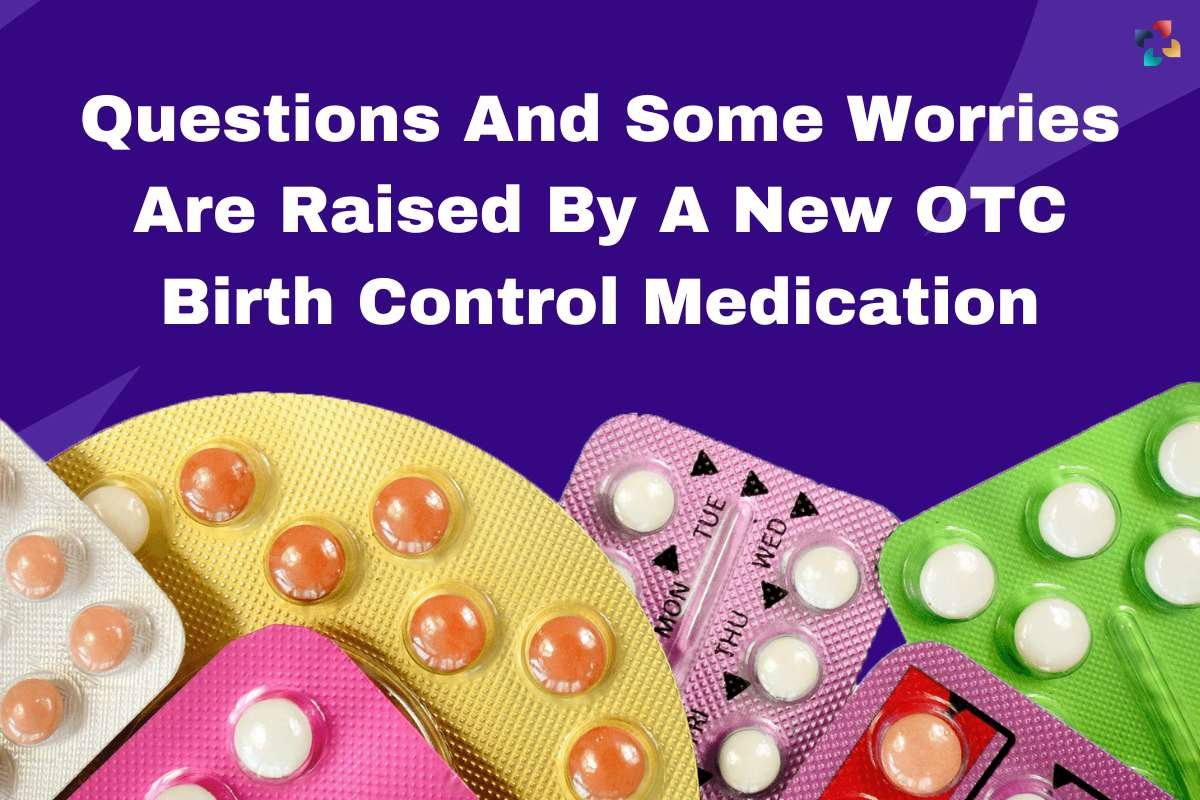The Rise Of OTC Birth Control: A Post-Roe Reproductive Rights Analysis

Table of Contents
Increased Access and Convenience
The current system for obtaining birth control presents significant barriers for many individuals. Access to affordable and convenient contraception is a cornerstone of reproductive healthcare, and OTC birth control offers a potential solution to longstanding issues.
Breaking Down Barriers to Access
Geographical limitations, cost barriers, and insurance coverage issues currently restrict access to contraception for millions.
- Geographical limitations: Many rural areas lack sufficient reproductive healthcare providers, forcing individuals to travel long distances for appointments and prescriptions.
- Cost barriers: The cost of birth control, even with insurance, can be prohibitive for many, leading to inconsistent or forgone use. A recent study showed that the annual cost of hormonal birth control can range from $100 to over $500, depending on the method and insurance coverage.
- Insurance coverage variations: Insurance coverage for contraception varies widely, depending on the employer, plan, and state. This disparity creates inequities in access, leaving some individuals uninsured or underinsured.
OTC birth control could significantly mitigate these barriers by offering greater accessibility and affordability. The convenience of purchasing at local pharmacies or even online removes the geographical barrier and often reduces costs compared to doctor visits and prescription refills.
Empowering Individuals
Beyond increased accessibility, OTC birth control empowers individuals by promoting self-management of their reproductive health.
- Convenience of purchasing: The ability to purchase birth control discreetly and conveniently at a pharmacy or online offers a significant improvement over traditional methods.
- Increased privacy: Obtaining birth control without a doctor's visit provides enhanced privacy and reduces the potential for stigma.
- Ability to plan ahead: Having readily available OTC birth control allows for proactive family planning and reduces the urgency and potential disruption of unexpected needs.
This empowerment aligns with broader discussions of bodily autonomy and reproductive freedom, enabling individuals to take control of their reproductive lives.
Potential Public Health Benefits
Wider access to OTC birth control offers significant potential public health benefits, extending beyond individual convenience.
Reduced Unintended Pregnancies
Increased access to contraception is strongly correlated with lower rates of unintended pregnancies.
- Studies consistently show a strong link between increased contraceptive access and decreased pregnancy rates, particularly among vulnerable populations.
- Reducing unintended pregnancies can have a substantial impact on abortion rates, as many unintended pregnancies result in abortion.
The availability of OTC birth control could significantly contribute to improving maternal and child health outcomes by reducing the number of unintended pregnancies and subsequent high-risk pregnancies.
Improved STI Prevention
OTC birth control can also improve access to methods that offer protection against sexually transmitted infections (STIs).
- Condoms, readily available over-the-counter, are a highly effective method of preventing STIs.
- The increased accessibility of hormonal birth control alongside condoms provides a comprehensive approach to sexual health.
Promoting comprehensive sexual health education alongside access to OTC contraception is crucial for reducing the incidence of STIs.
Potential Challenges and Concerns
Despite the numerous potential benefits, the shift to OTC birth control presents several challenges and concerns that require careful consideration.
Misinformation and Misuse
The increased availability of OTC birth control necessitates addressing potential concerns about the spread of misinformation and the risk of improper use.
- Accurate information and accessible resources are essential to ensure safe and effective use.
- Patient education materials, provider consultations (even brief ones), and public health campaigns play a vital role in mitigating misinformation.
Robust public education initiatives and easily accessible online resources are crucial to combat misinformation and promote responsible contraceptive use.
Regulatory Hurdles and Safety Concerns
Making birth control available over-the-counter involves navigating regulatory challenges and safety considerations.
- FDA approval processes are rigorous and ensure the safety and efficacy of OTC medications, including birth control.
- Potential safety concerns, such as interactions with other medications, require careful evaluation and clear labeling.
- Age restrictions and responsible dispensing protocols are also vital to ensure safe access.
Establishing a robust regulatory framework is essential to guarantee both safe and effective access to OTC birth control.
Conclusion
The increasing availability of OTC birth control presents a significant opportunity to advance reproductive rights in a post-Roe America. While challenges regarding misinformation and regulation exist, the potential benefits in terms of increased access, convenience, and improved public health outcomes are substantial. By addressing these concerns proactively and ensuring the availability of accurate information and support, we can work towards a future where everyone has the ability to make informed decisions about their reproductive health. To learn more about the ongoing conversation around OTC birth control and its impact on reproductive rights, continue researching reliable sources and participate in the discussion. Staying informed about developments in over-the-counter birth control access is crucial for advocating for comprehensive reproductive healthcare.

Featured Posts
-
 2025 Nhl Trade Deadline Impact On Playoff Races
May 10, 2025
2025 Nhl Trade Deadline Impact On Playoff Races
May 10, 2025 -
 New Report Details Potential Uk Visa Restrictions By Nationality
May 10, 2025
New Report Details Potential Uk Visa Restrictions By Nationality
May 10, 2025 -
 Social Media Censorship X Restricts Turkish Mayors Account Following Protests
May 10, 2025
Social Media Censorship X Restricts Turkish Mayors Account Following Protests
May 10, 2025 -
 Elon Musks Net Worth A Correlation With Us Economic Performance
May 10, 2025
Elon Musks Net Worth A Correlation With Us Economic Performance
May 10, 2025 -
 Frantsiya I Polsha Ukreplyayut Otnosheniya Detali Novogo Dogovora
May 10, 2025
Frantsiya I Polsha Ukreplyayut Otnosheniya Detali Novogo Dogovora
May 10, 2025
